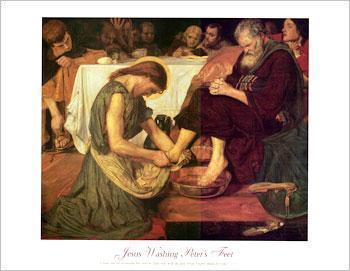The following post is the tenth that I have done which are excerpts from my new book my upcoming book Return to Our Senses, which will be available in mid November. It is already available through Mustard Seed Associates at a pre-publication discounted price of $15.
When MSA Board chair Penny Carothers was in Calcutta she befriended Asa and Jebodah, teenage sisters whose mother provides for them by selling herself at the temple of Kali, goddess of destruction. One day Penny and a friend went to distribute toys and clothing to some of the street kids. The kids came slowly at first delight on their faces, she remembers. “But the moment lasted only moments. Before we knew it desperate hands had wrested our gifts from us and in the violence of the moment we fell back into the gutter.”
What happened next profoundly impacted me when Penny related her story. “In my disillusionment I saw them,” Penny said. “Asa and Jebodah entered the filth to take our hands. They pulled us away and took us, dazed, to the water pump. And then they bent down and began to wash the grime off our feet. Beside me, my friend repeated over and over, “They are washing our feet.””
As I listened to Penny and read her story I thought – this is Jesus. These children are the ones who stooped to wash the disciples feet wearing nothing more than a lowly servant would. In them, dirty, homeless, covered in soot is the one who comes to us in the midst of our pain and the misery of our world to offer us comfort and love. Like them he comes as the lowliest and most despised of all servants – the one who washes feet.
Many of these children, as Penny noted are the children of prostitutes. They are despised within their own society as well as in ours. As I thought about this I realized how easily I could dismiss them. But the poor are with us always and everywhere. Here in the U.S. the nation’s poverty rate rose to 15.1% in 2010, 46.2 million people. This is its highest level since 1993. The poverty rate for children under age 18 is even higher. It increased to 22% in 2010, meaning more than 1 in 5 children in America are living in poverty. For African Americans it is 27.4% and for families headed by single mothers it is 31.6%, the highest rate of all.
Whose Feet Would you Wash?
Jesus washed feet as a prelude to the last meal he shared with his disciples. I think that in part Jesus washing of feet was a prayer for the disciples to notice those lowly unnoticed slaves who washed their feet. It was a reminder that everyone no matter how insignificant in the hierarchy of the day, has a place at God’s banquet table. The poor and the marginalized wear the face of Jesus.
The poor wash our feet in so many ways yet we rarely look them in the face. They make it possible for the rest of us to live lives of comfort and ease.It is the poor who pick our fruit and make our clothes. They provide us with furniture and with cheap building materials. They wash our dishes when we eat out and clean our hotel rooms when we go to Disney world. They mine our diamonds and the tantalum for our mobile phones.
What would happen I wonder if we entered into the story of these children as we do into the gospel story? What if we saw in their faces the face of Jesus stooping down to wash our feet as a preparation for the great banquet feast of God? What would happen if every time we bought our food at the supermarket we thought about those who produce what we eat and consider the conditions under which they live and bring up their children? What would happen if every meal we ate became a prayer of anticipation for the great banquet feast of God?


1 comment
[…] Living Into the banquet Feast of God. […]